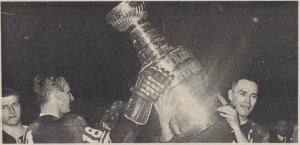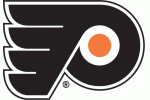With the demise of the Brooklyn Americans in 1942, the National Hockey League finally had an identity of its own – the so-called ‘Original Six’. It was a time of development and prosperity for a league that had little consistency in its first quarter-century. Passionate rivalries, along with rule changes such as the addition of the red line, were smoothing out the game’s rough spots and getting American and Canadian minds off the war at hand.
In 1963 the first amateur draft was held to help balance the distribution of talent between the six teams. It was at this point that the league began to contemplate growth, at a time when Major League Baseball and the National Football League were both finding success with the addition of multiple teams. It was in that same year that New York Rangers governor William Jennings brought an idea to his peers. It was an idea to expand the league to the west coast of the United States, due to his concern that the Western Hockey League (WHL) would take over the area when it began in 1966. The governors did not agree on the proposal, however it was a start.
At the time there were two teams north of the border in Canada – the Toronto Maple Leafs and the Montreal Canadiens. There were no distinct plans to continue to add to the country’s list of teams as the focus was solely on the United States. Every year the topic of expansion came up at the owners meeting. Finally, the league agreed to add more teams to the current six but now came the discussion as to what cities seemed deserving of a NHL franchise.

The NHL had plans to double in size, focusing mainly on the coast of North America. San Francisco-Oakland and Vancouver were both deemed acceptable cities, while Los Angeles and St. Louis were both thought to be potential sites.
14 applications were submitted from Canada and the United States and in 1966 the owners met and came to a decision on what cities were to be awarded franchises.
Bids from Baltimore, Buffalo and Vancouver were rejected by the league, though the latter two cities would both be awarded a team during the league’s second expansion in 1970. The lack of expansion in Canada left Canadians as well as Prime Minister Lester B. Pearson upset, though it’s believed that neither Toronto nor Montreal wanted to share television revenue with another Canadian team.
The news of the expansion was speculated greatly in the time leading up to the announcement and on June 5, 1967 the NHL announced the addition of six new franchises – the Minnesota North Stars, Oakland Seals, Los Angeles Kings, Pittsburgh Penguins, Philadelphia Flyers and the St. Louis Blues.
45 years later, it’s tough to argue that there has been a more important day in NHL history. It was a major step in the right direction for the NHL and helped the league build to 21 teams before entering the 1980s. The league had a quality, historic product before the expansion, but it was time to sprout out and prove the NHL could be a major sport in the North American market.

The NHL might have awarded the expansion teams but players were still needed to compete in action, which led to the NHL’s first expansion draft. Each team selected 20 players from the existing franchises, though a team could protect certain players. But that wasn’t the only way the expansion spread the popularity of professional hockey. Some of the NHL franchises created instant farm systems by buying pre-existing minor league teams, which often were struggling to make money.
The expansion was not just felt on one continent but rather throughout the world as it led to the NHL becoming involved with international play. It was a contributing factor that led to the Summit Series in 1972, creating a good versus evil feel as NHL teams made up of Canadian and American-born players took on the Soviet Union in a time when the Cold War dominated the headlines.
It was a risky move that helped seal the fate of the NHL but without it there wouldn’t be 30 markets in the league today. There are plenty of teams that are either a direct result, or a brain child, of the first expansion. I know my team wouldn’t be here today without it.